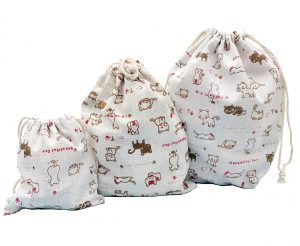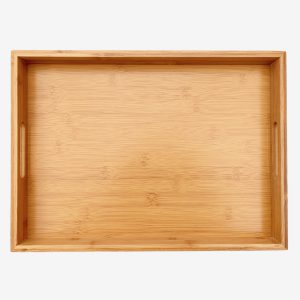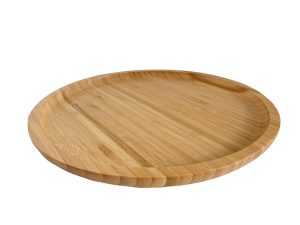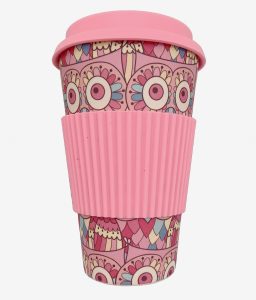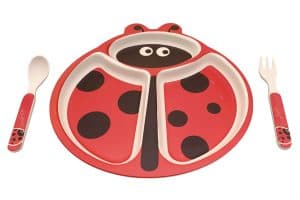Bamboo is a fast-growing, renewable, and sustainable plant that requires zero chemicals and pesticides. It can be grown in a wide range of tropical, subtropical and temperate regions and has countless uses in many areas of our daily life. The more I learn about what seems to be a “miracle plant”, the more I advocate for its use as a renewable resource and sustainable material. As our planet suffering from depletion of natural resources, deforestation, and harmful amounts of waste dumped into the environment, bamboo provides us with a green alternative solution to save our future.
What Is Natural Bamboo Fibre?
Bamboo textiles can be produced using a number of different methods. With the development of new technology, bamboo fibre can be created with a closed-loop production process. With a combination of mechanical and physical separation, chemical or biological degumming, stems of bamboo are crushed into a loss floc-like natural fibres. Unlike the process used to create viscose rayon, closed-loop production doesn’t chemically alter the structure of the cellulose that is used, which results in a fabric that can be considered purely organic. While the solvent used to make traditional viscose rayon is wasted and usually ends up in the biosphere, the solvents used in closed-loop production can be reused again and again, which significantly limits the environmental impact of this industry. The natural fibre obtained by separation is the fifth largest natural fibre after cotton, wool, silk and hemp. It can be used in textile, non-woven, composite materials, building materials, environmental protection materials and many other industries.
Benefits of Bamboo Fibre
- Antibacterial: Bamboo contains nature antimicrobial bio-agent called ‘bamboo kun’, which prevents bacteria and fungi to grow. The international SGS organization has found that the bacteria in the bamboo fibre are naturally reduced by 75% after 24 hours, while at the same condition, the bacteria will multiply in cotton and wood fibre.
- Deodorization: The special ultra-fine microporous structure inside the bamboo fibre makes it have strong adsorption capacity, and can absorb harmful substances such as formaldehyde, benzene, toluene and ammonia in the air to eliminate bad odour.
- Moisture absorption and dehumidification function: The cross section of bamboo fibre is composed of a plurality of elliptical slits, which is hollow, and the gas permeability is 3.5 times that of cotton. Bamboo fibre is known as the “breathing fibre queen” because it can absorb moisture and dehumidify instantly.
- Anti-ultraviolet: The UV transmittance of cotton is 25%, that is, 25 units of ultraviolet light is absorbed and stored in the subcutaneous tissue. The UV transmittance of bamboo fibre is less than 0.6%, and its UV resistance is 41.7 times of cotton. Due to its anti-ultraviolet radiation property, natural bamboo fibre is suitable for making summer clothing for the protection of human skin against damages of UV radiation (UVR).
- Durable: Bamboo Fibre products can be stronger than aluminium and more durable than oak. For example, bamboo bowls won’t break easily if you drop it, even on a tile floor.
- Lightweight: The strength is matches by a superb lightness which makes bamboo fibre highly practical. Even an over-sized bamboo bowl will be light enough for a child to lift or carry.
- Eco-Friendly: Bamboo fibre is completely bio-degradable, and as bamboo is the fastest growing plant on Earth, it is a sustainable and renewable form of material.
Popular Bamboo Fibre Products
Bamboo Fibre Reusable Coffee Cup
Save the planet a cup at a time with the Bamboo Fibre Reusable Coffee Cup. Made from hardwearing, sustainably sourced bamboo fibre, it’s environmentally friendly yet supremely practical. This eco-friendly option offers coffee lovers and tea drinkers an ideal alternative to disposable cups and boost your environmental credentials.
Bamboo Fibre Children Dinner Set
Bamboo fibre is naturally lightweight, making it easy for little hands to hold. The bamboo fibre children set contains a baby spoon and fork, which are smooth but with comfortable and enough grip so a toddler can develop a good grasp for self-feeding. Without any plastic material, the dinner set can decompose in nature within 3 years, making it an ideal subject to increase environmental awareness from very young age.
Bamboo Fibre Cloth
Bamboo fabric is a natural textile made from the pulp of the bamboo grass, the bamboo fibre is then made by pulping the bamboo grass until it separates into thin threads of fibre, which is then spun and dyed for weaving into cloth. Unlike many of the other fabrics, bamboo is extremely breathable, and it is able to keep the wearer almost two degrees cooler in the heat and noticeably warmer in the cold. Bamboo fibre cloth is also anti-bacteria, UV protective and perfect for those who experience allergic reactions to other natural fibres such as wool or hemp.
Bamboo Fibre Bedding
If you get too hot at night or suffer from night sweats, bamboo bedding could be the answer. Bamboo fibre is incredibly soft, naturally antibacterial and absorbs moisture. It also regulates temperature, keeping you cool when you have night sweats or hot flushes – making it perfect for bedding, including sheets and duvet covers.
Degradable Flower Pots
If you’ve got totally green thumbs, you’ll love the bamboo fibre flower pots. They are made entirely from eco-friendly and biodegradable materials and will breakdown and biodegrade in landfill over 3-5 years, leaving a much lower footprint than other materials. You can combine different colours and designs to create a contemporary atmosphere in your interior and brings out the best of your flowers and houseplants.


